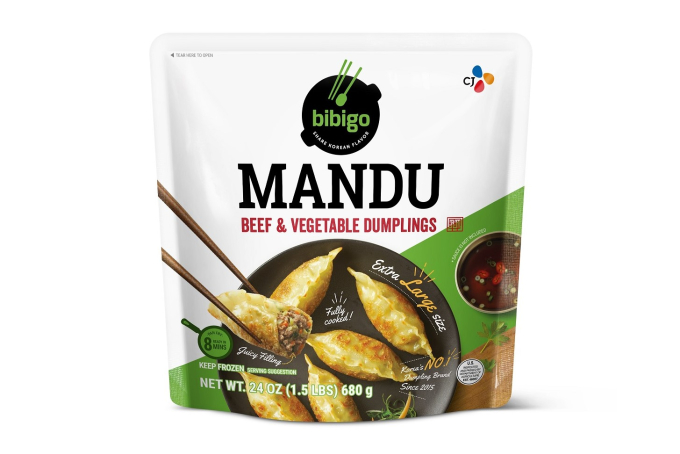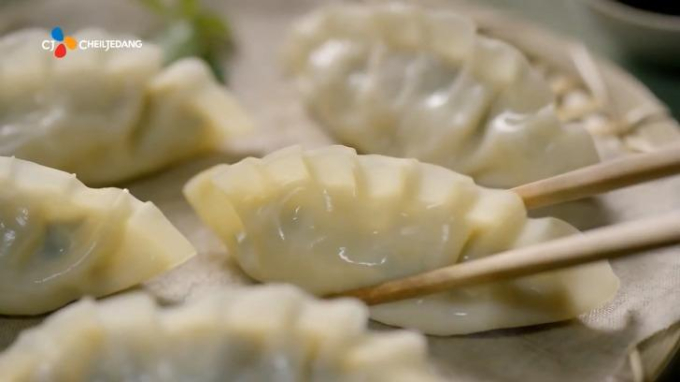F&B industry
Bibigo mandu sets milestone in Korean food industry
By Dec 22, 2020 (Gmt+09:00)
3
Min read
Most Read
LG Chem to sell water filter business to Glenwood PE for $692 million


KT&G eyes overseas M&A after rejecting activist fund's offer


Kyobo Life poised to buy Japan’s SBI Group-owned savings bank


StockX in merger talks with Naver’s online reseller Kream


Meritz backs half of ex-manager’s $210 mn hedge fund



The company's prized item, Bibigo mandu, will go down in history not only for posting record-breaking sales but also for having 65% of its sales come from overseas markets, countering the commonly held view that Korean food can only succeed in Korea or with Korean residents who live abroad.
Over the past decades, Korean food companies generally placed Asian markets and Koreans living abroad as their target consumers. But Bibigo mandu took a leap of faith and forayed into the US, Japan, Europe and China via aggressive M&As and localization strategies to win over local consumers.

Mandu is a beloved dish worldwide. Its origin can’t be identified because each culture has its own mandu, bearing many monikers including dumplings, ravioli, dim sum, gyoza, tortellini and wontons, depending where they are consumed and how they're made.
Mandu is made by filling up a thin layer of dough with various ingredients ranging from meat to vegetables. They are usually cooked by frying, steaming or boiling.
Bibigo, the brand under CJ CheilJedang, released its mandu line seven years ago. From the beginning, the company adopted a two-track strategy involving localization and active M&As to grow its overseas infrastructure.
The company strategically offered Korean mandu alongside flavors popular with local consumers. In the US, CJ CheilJedang developed chicken & cilantro mandu to draw in consumers who prefer chicken as their meat selection and cilantro as their choice of herb.
Noting that Chinese people consume a lot of corn and cabbage, CJ CheilJedang launched corn mandu and cabbage mandu. In Japan, steamed mandu became a big hit.
“Localized products began to sell well, which also boosted sales for the original Bibigo mandu,” said a CJ CheilJedang official.

LOCALIZATION SERVES AS KEY TO SUCCESS
CJ CheilJedang's success is owing to its dedication to localization and vigorous overseas investment. Since 2015, the company has acquired frozen food companies worldwide, including Vietnam’s Cau Tre, Germany’s Mainfrost alongside US-based Kahiki Foods and Schwan’s Company.
The company also established regional production bases in the US, China, Vietnam and Europe. In the US, the company set up factories in California, New York and New Jersey, which helped CJ CheilJedang overtake the leading Chinese dumpling brand Ling Ling and become the No. 1 market player in 2016.
In Vietnam, the company has been seeing 100% annual growth, posting over 60 billion won in sales this year.
“Food has a culture of its own and it has greater value than just being consumed,” CJ Group Chairman Lee Jay-hyun has often said. "We need to cultivate food and position it as a high value-added business."

Under Chairman Lee, Korean popular food brands including Bibigo, instant rice brand Haetban, and microwaveable rice bowls Hetbahn Cupbahn were introduced.
The group has also invested around 100 billion won over the past five years to foster new business areas such as home meal replacement (HMR) kits, and to create and develop new brands and processing techniques.
Another reason behind Bibigo mandu's recent global success is the spreading view that they are healthier than other dumplings thanks to their thin flour shells and high vegetable content.
“Europeans are becoming more health conscious and interested in safe products. In Europe, Bibigo is known as a healthy and ethical food brand,” Germany-based Bibigo researcher Jung Hee-jung explained.
Write to Bora Kim at destinybr@hankyung.com
Danbee Lee edited this article.
More to Read
-

-
 Korean chipmakersSamsung in talks to supply customized HBM4 to Nvidia, Broadcom, Google
Korean chipmakersSamsung in talks to supply customized HBM4 to Nvidia, Broadcom, Google20 HOURS AGO
-
 EnergyLS Cable breaks ground on $681 mn underwater cable plant in Chesapeake
EnergyLS Cable breaks ground on $681 mn underwater cable plant in ChesapeakeApr 29, 2025 (Gmt+09:00)
-
 Business & PoliticsUS tariffs add risk premium to dollar assets: Maurice Obstfeld
Business & PoliticsUS tariffs add risk premium to dollar assets: Maurice ObstfeldApr 29, 2025 (Gmt+09:00)
-

Comment 0
LOG IN


